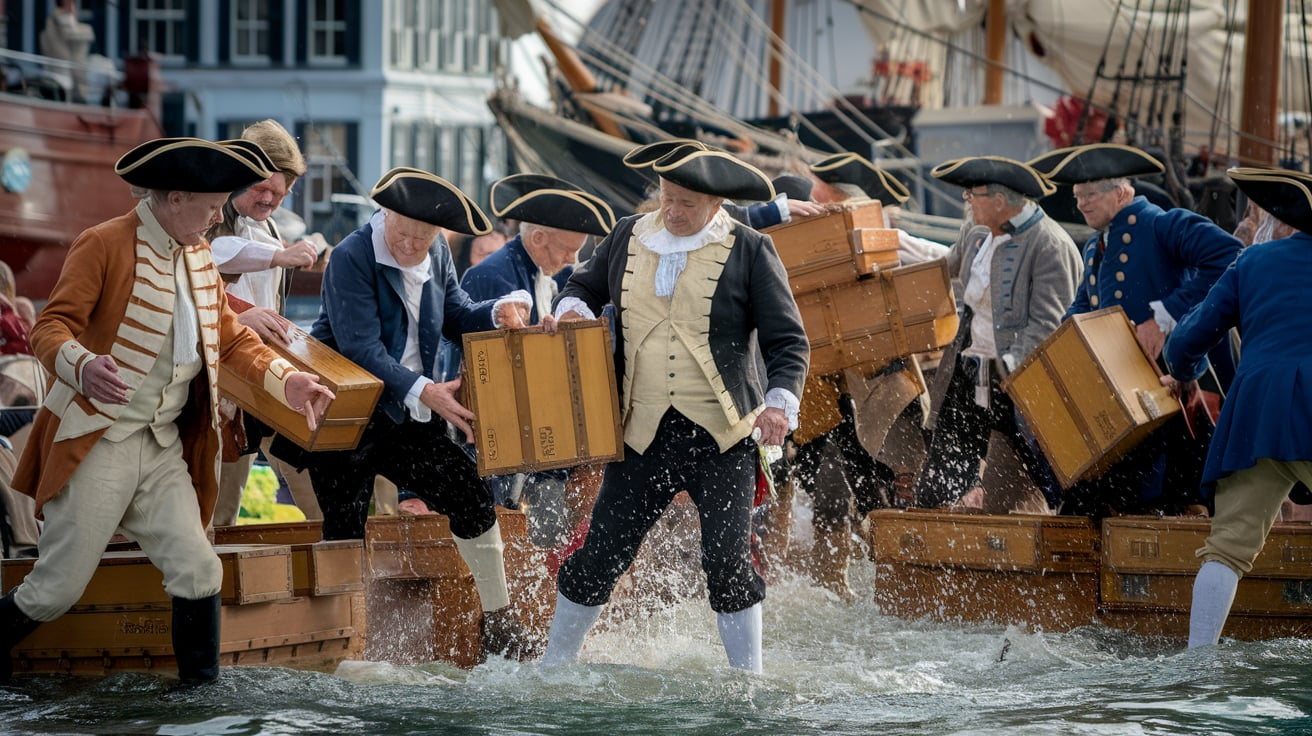Introduction
Understanding what bad things did Great Britain do to the colonies was key to grasping the tensions that led to the American Revolution. The British imposed unfair taxes, like the Stamp Act, without giving the colonies representation in Parliament. They enforced restrictive trade policies, housed soldiers in colonial homes through the Quartering Act, and punished dissent harshly. These actions and the denial of self-governance fueled anger and resistance among the colonists. Exploring what bad things did Great Britain do to the colonies reveals how these oppressive measures ultimately sparked an independence movement.
Unfair Taxation Policies
When analyzing what bad things did Great Britain do to the colonies, taxation stands out as one of the primary grievances. The British imposed heavy taxes, such as the Stamp Act and the Tea Act, without colonial representation in Parliament. Colonists felt this violated their rights as Englishmen. The phrase “no taxation without representation” became a rallying cry for resistance. This unfair practice laid the foundation for widespread unrest and rebellion.
The Burden of the Quartering Act
One key aspect of what bad things did Great Britain do to the colonies was the enforcement of the Quartering Act. Colonists were forced to house and supply British soldiers in their own homes, often against their will. This invasion of privacy and property outraged the colonists. Many felt their basic freedoms were being trampled. This act added to the growing dissatisfaction with British rule.
Restrictive Trade Regulations
Among what bad things did Great Britain do to the colonies, restrictive trade policies played a significant role in colonial grievances. The Navigation Acts forced the colonies to trade exclusively with Britain, limiting economic growth. Colonists were unable to sell goods to other nations for better profits. These restrictions ensured British dominance while stifling colonial enterprise. Such exploitation fueled calls for economic independence.
The Intolerable Acts’ Oppression
When discussing what bad things did Great Britain do to the colonies, the Intolerable Acts stand out as severe punitive measures. These acts passed after the Boston Tea Party closed Boston Harbor and stripped Massachusetts of self-governance. The colonists saw these laws as direct attacks on their rights and autonomy. The harshness of the Intolerable Acts galvanized resistance, uniting the colonies against British oppression.
Denial of Political Representation
Another significant point in what bad things did Great Britain do to the colonies was the denial of political representation. Despite their growing population and economy, the colonies were excluded from the British Parliament. Decisions about their governance and taxation were made without their input. This lack of representation led to feelings of disenfranchisement. It became a driving factor in their quest for independence.
Excessive Military Presence
The excessive military presence highlights what bad things did Great Britain do to the colonies to intimidate and control them. British troops were stationed in towns and cities during peacetime, often interfering in daily life. Incidents like the Boston Massacre showed how these soldiers escalated tensions. The colonists viewed the military as enforcers of oppression rather than protectors. This created a deep mistrust of British authority.
Economic Exploitation of the Colonies
Economic exploitation is central to what bad things did Great Britain do to the colonies. Britain treated the colonies as sources of raw materials and markets for their goods. Colonial industries were suppressed to ensure dependence on British imports. This mercantilist approach stunted economic growth in the colonies. The lack of financial freedom added to the resentment against British policies.
Unjust Legal Practices
Unjust legal practices illustrate what bad things did Great Britain do to the colonies by denying them fair trials. British authorities often moved trials for colonial dissenters to other jurisdictions, making it difficult for them to defend themselves. This practice undermined the colonists’ rights to a jury of their peers. It was seen as another way to suppress resistance. Such legal abuses further alienated the colonists from British rule.
The Proclamation of 1763
The Proclamation of 1763 is a critical example of what bad things did Great Britain do to the colonies. This law prohibited colonists from settling west of the Appalachian Mountains despite their contributions to the French and Indian War. It restricted their expansion opportunities and angered land-hungry settlers. The British aim to avoid conflicts with Native Americans came at the cost of colonial ambitions, deepening discontent.
Harsh Punishments for Protesters
Harsh punishments for protesters highlight what bad things did Great Britain do to the colonies. Colonists who resisted British laws were often fined, imprisoned, or publicly punished. Acts of rebellion, such as smuggling, were met with severe consequences. This aggressive approach only strengthened the colonists’ resolve. Instead of quelling dissent, these punishments fueled the revolutionary spirit across the colonies.
Conclusion
Reflecting on what bad things did Great Britain do to the colonies, it is evident that a series of oppressive actions and policies fueled the colonies’ drive for independence. Unfair taxation, restrictions on trade, denial of self-governance, and excessive military control created deep resentment among the colonists. These injustices were perceived as violations of their rights and freedoms, ultimately uniting them in their struggle against British rule. The answer to what bad things did Great Britain do to the colonies lies in understanding how these grievances became the foundation of a revolution that changed history.
READ MORE: itsoftedge.com
